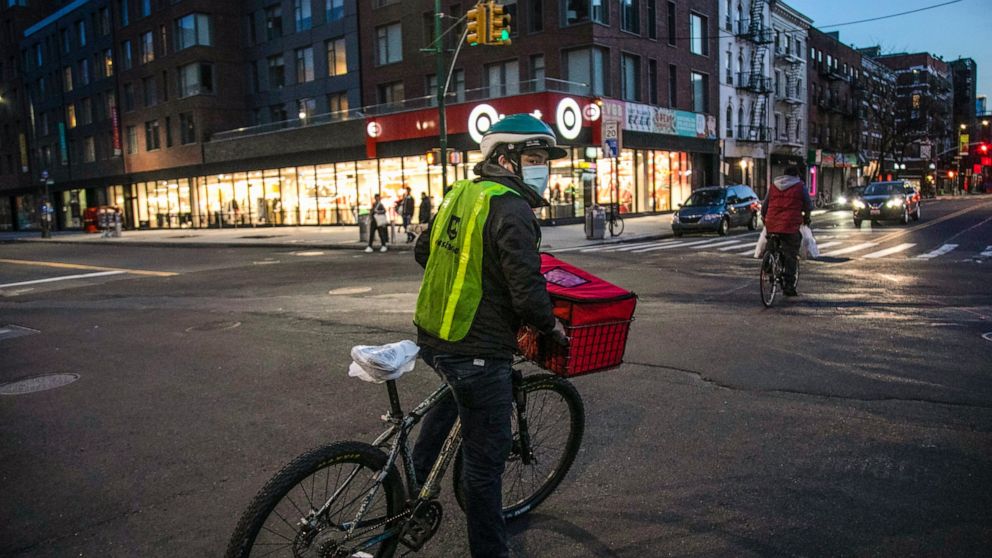Food delivery workers, ride-share drivers demand more rights
Groups representing about 100,000 ride-share drivers and food delivery workers in and near New York City have formed a coalition called Justice for App Workers
NEW YORK — Food delivery workers in New York City, fresh off winning rights to transparency in tipping and the use of restaurant bathrooms, joined with ride-share drivers Tuesday in pressing for more protections, including better wages, health care and the right to unionize.
Groups representing about 100,000 such app employees announced the formation of a new coalition, Justice for App Workers, that would push for new measures they say would “achieve dignity” for drivers and the city’s fleet of delivery workers.
The vast majority of app workers in New York City are immigrants. Reliable statistics on the number of app workers aren’t available, but estimates put the number at tens of thousands — many of them lured into the industry by the flexibility of schedules, the need to supplement income from primary jobs, or out of necessity because of few other options.
Most of the coalition’s members are based in New York City, but it also represents members in parts of neighboring regions. The coalition hopes its advocacy will ripple into movements across the country.
“We are delivery workers or Uber drivers. We’re moving the city. … They want good food, and we deliver it to their door,” said Ranjit Geuli, a member of the United Delivery Workers Association and a driver for Uber and Uber Eats for five years.
“We have no protection. … Our jobs are unsecured,” said Geuli, an immigrant from Nepal, who called for a union at a rally near City Hall. “If we all come together, it will be a big voice.”
The ride-sharing industry was hit hard by the COVID-19 pandemic but remains a multibillion-dollar industry. On the other hand, apps like DoorDash and UberEats have flourished as diners shunned restaurants in favor of home delivery. The food delivery business generates more than $150 billion worldwide, according to an analysis by McKinsey & Co., a business consulting firm.
Those numbers have riled advocates who say workers aren’t getting their fair share.
“App workers run New York City. Without app workers, New York City would be at a complete standstill,” said Aeraj Kazi, a driver advocate. “Justice for App Workers is about finally being able to step up against these big dogs.”
The coalition, which includes the NYC Rideshare Club, United Delivery Workers Association and seven other groups, said many of its members struggle to pay rent, keep up with car payments and provide for their families.
In a statement, the ride-sharing company Lyft said it was willing to work with its drivers “to strengthen app-based work, prioritizing earnings, safety and protecting the independence and flexibility drivers want.”
Immigrants like Peng Fei Zhang, who must support a family of five, say they have little choice but to take delivery jobs because their poor command of English makes it more difficult to land other jobs.
Last month, some new protections went into effect in New York City, among them the right to use restrooms at restaurants for whom they are delivering food. The online firms that employ them must also reveal how much customers tip and must tell workers how much they earned on a daily basis.
Until the new law, food delivery workers were at the mercy of restaurant owners who didn’t always grant them permission to use their facilities. Some resorted to carrying bottles in which to urinate, said Dachuan Nie, the president of the International Alliance of Delivery Workers, who himself continues to deliver food to earn a living.
The coalition said it is focused on advocating for living wages, better safety, quality health care, reliable bathroom access, the right to form a union, and protections against being unfairly blocked from receiving work.
![]()


